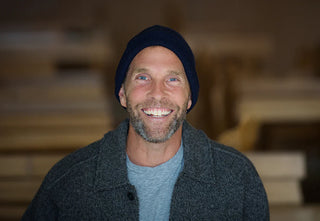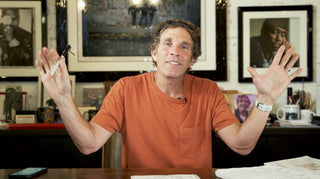When my book Living With A SEAL came out in 2015, my friend Brian Groden asked me to come speak at his office. I was thrilled and even offered to pay him for the opportunity, but he insisted otherwise. That gives you a little insight into how little I knew about how this whole public speaking world worked...
The setup was simple: 60 people crammed into a 40-person conference room, some standing, some sitting, with no microphone or slides. I brought 60 signed books to give away and was incredibly nervous. I'd been on many stages before, but never to just talk for 45 minutes.
I managed to keep them entertained despite the distractions of phones and the rising temperature in the room. And the next thing I knew, they were all clapping with smiles on their faces. Was it my best speech ever? Not even close, but it was good enough.
Afterward, an audience member came up to me and asked if I was available for a talk the following week. I said sure and it snowballed.
The next few months, I found myself in conference rooms all over Manhattan. But guess what? Each time, my speech got a little better. I found the lines that worked and trimmed the ones that didn't. I was gaining confidence, and the nerves transformed into excitement. My goal was to eventually start getting paid, so I did as many unpaid events as I could.
Over time, my speaking fees gradually increased as I built my reputation and honed my skills. It took me eight years to establish myself as a sought-after speaker, but those early days in cramped conference rooms were the foundation of my success.
Looking back, I realize that my journey in public speaking was similar to that of a standup comedian. The greats, like Chris Rock or Dave Chappelle, don't just show up at Madison Square Garden with new material. They go to small, nondescript venues to try out their jokes, honing their craft and getting valuable feedback from the audience. It's the same with public speaking, pitching, or any presentation – the more reps you get, the better you become.
During those years of speaking in conference rooms and small venues, I was getting invaluable experience dealing with distractions, people coming in and out of the room, laughter, and technical issues. If you're not used to those challenges, they can easily rattle you on stage.
The lesson here is that to excel in anything, whether it's public speaking, comedy, or business, you need to put in the reps and figure out how to get your foot in the door. Start small, embrace the challenges, and keep pushing yourself to the next level. Those seemingly insignificant gigs in conference rooms or small clubs are the foundation upon which greatness is built.
So, never be afraid to start at the bottom and work your way up, one rep at a time.




